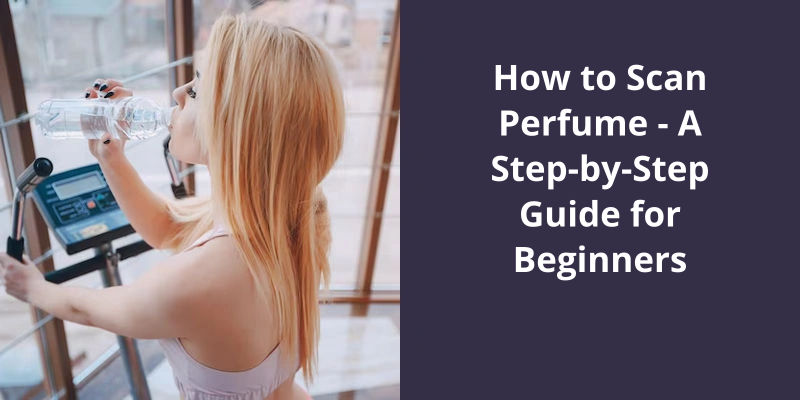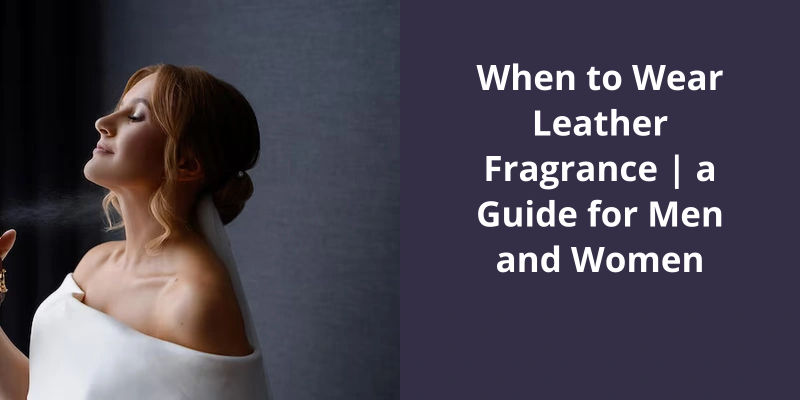Maturating cologne is quite a simple process. First, you blend your chosen essential oils together in precise quantities to create a pleasant fragrance. Once your fragrance mix is ready, you combine it with alcohol, usually ethanol, which acts as a carrier for the scent. The ratio of oils to alcohol would vary but a standard guideline is about 15-30% oils to 70-85% alcohol. At this point, your scent is sort of ready but needs to be left alone. To maturate the cologne, you need to store this mixture in a cool, dark place for at least a couple of weeks, shaking it once every few days. This allows the different aromas to meld together, resulting in a more balanced and well-rounded final scent. After this resting or ‘maturation’ period, it’s a good idea to add a small amount of water to your cologne, about 5-10% of the total volume, to mellow out the strength of the alcohol. Now, your cologne is ready for use! Remember, the longer you allow your cologne to mature, the smoother and more pleasant it can become, just like a good wine.

How Do You Mature Cologne?
During the maturation period, the volatile top notes of the fragrance lose intensity, while the heart and base notes begin to shine. These changes are necessary as they allow the various aromatic compounds to blend perfectly together, creating a symphony of scents that’s truly unique. Additionally, long-term ageing can also cause the perfume to take on a deeper, richer quality, as the scent molecules grow more complex and harmonious.
One of the best ways to mature cologne is by using oak barrels, which have proven to be highly effective in aging spirits and perfumes alike. Oak barrels are porous, meaning that a small amount of air is able to enter the barrel, which then interacts with the liquid inside. This interaction contributes to the development of a rich, deep flavor and aroma profile, which is highly sought after in the fragrance industry.
Another essential factor in maturing cologne is the type of alcohol used. High-quality alcohol, such as grain alcohol or grape ethanol, allows for a smooth and refined aging process that creates a more complex scent profile. Cheap alcohol can result in an unpleasant, abrasive smell, so it’s important to use only the best ingredients.
Temperature and humidity levels are also crucial factors in the maturation process. If the temperature is too high or the humidity is too low, it can affect the fragrance negatively. Ideal conditions for maturing cologne include temperatures between 60-65°F, with a humidity level of around 70%. Storing the cologne in a dark place, like a cellar or wardrobe, will also keep the fragrance fresh and prevent breakdown.
Finally, during the maturation process, it’s important to check the fragrance periodically to ensure that it’s maturing as intended. This means assessing the fragrances color, scent, and flavor profile regularly. The key is to be patient and let the process take it’s course. Maturing cologne is a delicate process, but the results are well worth the wait. It results in a scent that’s unique, complex, and truly worthy of admiration.
Tips for Storing and Preserving Cologne for Optimal Aging.
- Store cologne in a cool, dry place away from direct sunlight.
- Avoid storing cologne in areas with high humidity, such as the bathroom.
- Keep the bottle tightly capped to prevent evaporation.
- Avoid exposing the cologne to extreme temperatures.
- Consider using a decorative box or case to protect the bottle from light and air.
- Don’t store cologne near other fragrances or chemicals, as they can affect the scent.
- Rotate your cologne collection and use older bottles before newer ones to prevent spoilage.
- Consider investing in a cologne fridge to maintain optimal storage conditions.
- Avoid purchasing large bottles of cologne that may not be used before spoiling.
Now that we know how long cologne typically lasts on the skin, let’s discuss some of the factors that can impact it’s longevity and what you can do to make it last longer.
How Long Does It Take for Cologne to Fade?
Additionally, applying cologne to areas of the skin that produce heat or that are frequently exposed (like your wrists or neck) can also increase it’s longevity. Conversely, applying cologne to dry or cold areas (like your back or behind your knees) can cause it to dissipate more quickly.
Climate can also play a role in how long cologne lasts on the skin.
The quality of the cologne itself can also affect how long it lasts. Higher-end fragrances with more natural ingredients may last longer than cheaper, synthetic blends. Additionally, how the cologne is stored can also have an impact on it’s longevity. Direct sunlight, heat, and humidity can all cause fragrances to break down more quickly.
For example, washing your skin with hot water or exercising vigorously can cause the fragrance to dissipate more quickly.
Source: How Long Does Cologne Last on Skin? 6 Tips for Making it …
The art of crafting a perfume requires a delicate balance between science and creativity. A crucial aspect of this process is allowing the ingredients to develop and mature into a harmonious scent. Maceration, or the process of aging the finished alcohol solution, plays a vital role in achieving this balance. It’s especially crucial when working with natural elements or certain base notes. But is macerating perfume always necessary? Let’s explore this topic in more detail.
Is Macerating Perfume Necessary?
Maceration refers to the process of infusing the alcohol solution with the essential oils or flavorings used in the perfume. This process is essential for certain fragrances to develop fully and reach their intended scent profile. When done correctly, maceration can bring out the full range of aromas and nuances in the perfume, creating a more complex and refined fragrance.
Some perfumes may not require maceration at all, while others may require a long maceration period that lasts several months. In general, natural perfumes with a high concentration of essential oils will benefit most from maceration as it gives the oils time to blend and mature fully.
This can reduce the risk of separation or oxidation over time, which can result in a spoiled or off-putting scent. Moreover, maceration can help remove any residual impurities or unwanted odors from the alcohol solution, ensuring a clean and pure final product.
In addition to the benefits for the fragrance, maceration can also be useful for the production process itself. By allowing the finished product to sit for a period of time, any inconsistencies or flaws in the blend can become more apparent. This can allow the perfumer to make adjustments or tweaks to the blend before it’s finalized and bottled.
While modern techniques may simplify or streamline the process, the tradition of maceration remains an important aspect of the perfume-making heritage and culture.
The History of Maceration in Perfume-Making and How It Has Evolved Over Time.
Maceration is an ancient perfume-making technique that involves steeping botanical materials in oil or alcohol to extract their fragrance. It’s been used for thousands of years and has evolved over time with the introduction of new ingredients and technologies. Today, maceration is still a popular method used by perfumers to create unique and complex fragrances.
Understanding the difference between maceration and maturation is crucial in creating and appreciating quality fragrances. While both processes involve letting a perfume composition rest, they differ in their purpose and outcome. Let’s take a closer look at each process and how they influence the final perfume product.
What Is the Difference Between Maceration and Maturation Perfume?
While they may sound similar, maceration and maturation play very different roles in the production of fragrances. Maceration involves letting a combination of scent compounds and solvents sit together for a certain period of time, allowing the ingredients to blend together and form a cohesive scent profile. This process is integral to the creation of many perfumes, as it’s a way to meld all of the different ingredients together into a harmonious whole.
Maturation, on the other hand, involves letting a perfume sit after it’s been bottled, allowing the chemical compounds within the fragrance to interact and transform over time. This process can be quite complex, and it isn’t always easy to predict how a fragrance will change during maturation. Some scents may become richer and more complex, while others may lose certain top notes or become more subdued over time.
Without maceration, many perfumes would lack the depth and complexity that make them so appealing. And without maturation, fragrances wouldn’t have the opportunity to develop and evolve over time, which can add to their allure and mystique.
By understanding these processes, you can gain a greater appreciation for the art of perfume making, and perhaps even create your own signature scent one day.
The Importance of Blending Fragrances in Maceration and How It Affects the Final Product.
Blending fragrances is an important part of the maceration process. The way different scents interact can have a significant impact on the final product. The right blend can enhance the fragrance and create a more complex scent, while a poor blend can result in a flat or unpleasant fragrance.
Taking care of your skin is essential if you want to smell like cologne all day. While it’s natural to focus on the fragrance, experts recommend prioritizing moisturization as well. By hydrating your skin before applying cologne, you’re more likely to keep the scent lasting for longer periods. Ready to learn more? Here are some additional tips on how to smell like cologne all day.
How Can I Smell Like Cologne All Day?
Another way to smell like cologne all day is to apply a solid or concentrated fragrance instead of a spray. These can be applied directly to the skin, ensuring the scent stays in a specific area and lasts longer throughout the day. In addition, try applying the fragrance to pulse points, such as the wrists, neck, and behind the ears, as these areas produce heat which intensifies the scent.
Consider layering your fragrances for a longer lasting scent. Pairing a fragrance with a matching lotion or aftershave can enhance and prolong the fragrances scent on the skin. Additionally, choosing a fragrance with similar base notes to your deodorant or antiperspirant can also prolong the overall scent experience.
Regularly reapplying your fragrance throughout the day can also help maintain it’s scent. Remember to do this with caution, as overapplication can lead to an overpowering smell and can be uncomfortable for others around you. In addition, consider keeping a travel size or roll-on version of your favorite fragrance in your bag or at your desk for a quick touch-up.
Invest in reputable, high-quality fragrances. While it may be tempting to opt for cheaper drugstore options, they often contain less concentrated ingredients which lead to shorter staying power. Choosing a higher-end fragrance, even in smaller amounts, is likely to last longer on the skin throughout the day.
Lastly, consider paying attention to the environment you’re in. Wear fragrance that complements your surroundings, such as choosing lighter, fresher scents for work or during the day and more intense, woody scents for evening events. This can’t only enhance the overall scent experience, but can also prevent an overpowering smell in inappropriate environments.
The Difference Between Eau De Parfum, Eau De Toilette, and Other Fragrance Types and How It Affects Staying Power
Eau de parfum and eau de toilette are different types of fragrances with varying strengths and staying power. Eau de parfum is typically stronger and longer lasting than eau de toilette, as it contains a higher concentration of fragrant oils. Other fragrance types, such as body sprays and colognes, may have a lighter concentration and therefore may not last as long as eau de parfum or eau de toilette.
Conclusion
In conclusion, maturing cologne is an art form that requires patience, attention to detail, and an appreciation for the complexities of fragrance. Whether you choose to age your cologne in a dark, cool place or simply allow it to sit on your shelf for a few months, the key is to let the scent develop and evolve over time. With careful experimentation and a willingness to try new things, anyone can learn to mature their cologne and create a truly unique and personal fragrance experience. So why not start today and explore the world of maturing cologne for yourself? The results may just surprise you.





